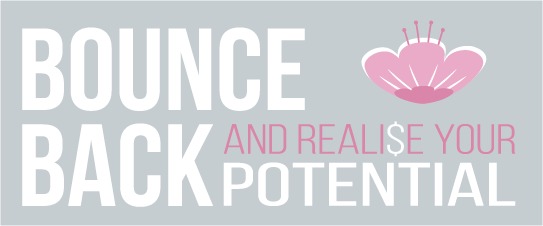Scams and How to Recognise Them
My mum has been receiving a stream of spam calls over the last couple of years. One such caller managed to convince her that her bank account was under threat by scammers. She was so convinced that she went to her bank and attempted to withdraw $20,000 from her account which she was then going to deposit into an account that the scammers gave her. Fortunately for us all, the bank said she couldn’t withdraw that amount of money without arranging it first. And fortunately, mum rang to let me know what was going on, although she wasn’t at all concerned about it. That evening, the scammers rang her and persuaded her to transfer $10,000 from her account to someone else, having her increase her daily limit, set up a new payee and transferring it – all red flags for the bank’s security system. Fortunately, the bank didn’t process the transfer and the next day I took mum to the bank and we removed her internet access! Too great a risk!
So, How Do You Know if You are Being Scammed?
Online scams are sophisticated messages, often using professional looking brands and logos to look like they come from a business you know. At first sight this can make it difficult for you to know what is real and what is fake.
A scam message can be sent by email, SMS, dating sites, social networking sites, instant messaging or even through videophone communications such as Skype or FaceTime.
Scammers use different tactics to try to win your trust. They can find out a lot about you from your social media profiles before approaching you as a friend or potential romantic partner.
In winning you over, a scammer will work hard to get you to reveal more personal details about yourself – where you live, work, your family members, past relationships or financial circumstances. Once they have this information, they can use it to steal your identity or blackmail you into giving them money.
Some scams involve asking you for money upfront, to help with an ‘emergency’ or to pay for equipment or services. Scammers may even impersonate a friend or business you communicate with online, to try and convince you of their story.
Tax scams change from year to year. Cybercriminals claim to be from the Australian Taxation Office (ATO) or registered tax agents, or associated with trusted brands like myGov, and use convincing language to trick taxpayers as they prepare to lodge their tax returns or await tax refunds.
Cybercriminals send fake parcel delivery notifications to trick you into downloading malware or giving away your personal or financial details.
These notifications are typically an email or SMS message pretending to be from a legitimate parcel delivery business like Australia Post, DHL or FedEx, claiming you have an ‘undelivered package’ awaiting your collection.
- Be wary of messages that don’t address you personally, have few or no details about your order, or threaten to charge you a fee for holding an undelivered item.
- Think before you click – remember Australia Post will never ask you to click a link to print out a receipt for parcel collection, nor will they ask you to update or verify your personal information.
- If you’re unsure, call the organisation but remember to use contact details from a verified website or other trusted source.
Unexpected Money Scams
- usually promise you a significant share of a large sum of money, or other reward, in return for a small up-front payment
- request your personal financial details, and
- are also known as ‘advance fee fraud’ scams.
There are different types of unexpected money scams, but they all promise the lure of some greater reward, which could be:
- an unexpected lottery win
- an inheritance
- payment to assist with transferring money out of a country (‘Nigerian’ scams)
- a share in profits from a business investment.
Tips to Avoid Being Scammed
- Be suspicious of calls or messages you receive out of the blue.
If a government agency or trusted business contacts you unexpectedly, whether over the phone, by email, in person or through social media, always consider the possibility it may be a scam. - Check their contact details.
If you’re unsure whether a call or email is real, verify the identity of the person contacting you through an independent source, such as a phone book or online search. Don’t use the contact details provided by the caller or in the message they sent to you. - Resist their threats.
Don’t be pressured by a threatening caller. Hang up, then check whether their story is real. - Do a ‘sanity check’.
If you’re still unsure, speak to a trusted friend or family member about what has happened. - Protect your details.
Never send money or give your bank account details, credit card details or other personal information to anyone you don’t know or trust. - Be suspicious of strange payment methods.
A government agency or trusted business will never ask you to pay by unusual methods, such as a gift or store card, iTunes card, wire transfer or Bitcoin. - Don’t open attachments and links.
Don’t open suspicious texts, pop-up windows or emails and don’t click on links or open attachments. Always delete them. - Never give anyone remote access to your computer.
Don’t let anyone log into your computer from their location, especially if they’ve contacted you out of the blue, via a phone call, pop up window or email.
If you’ve been scammed, you can report it here https://www.cyber.gov.au/acsc/report
Yours in Finance
Sarah x




